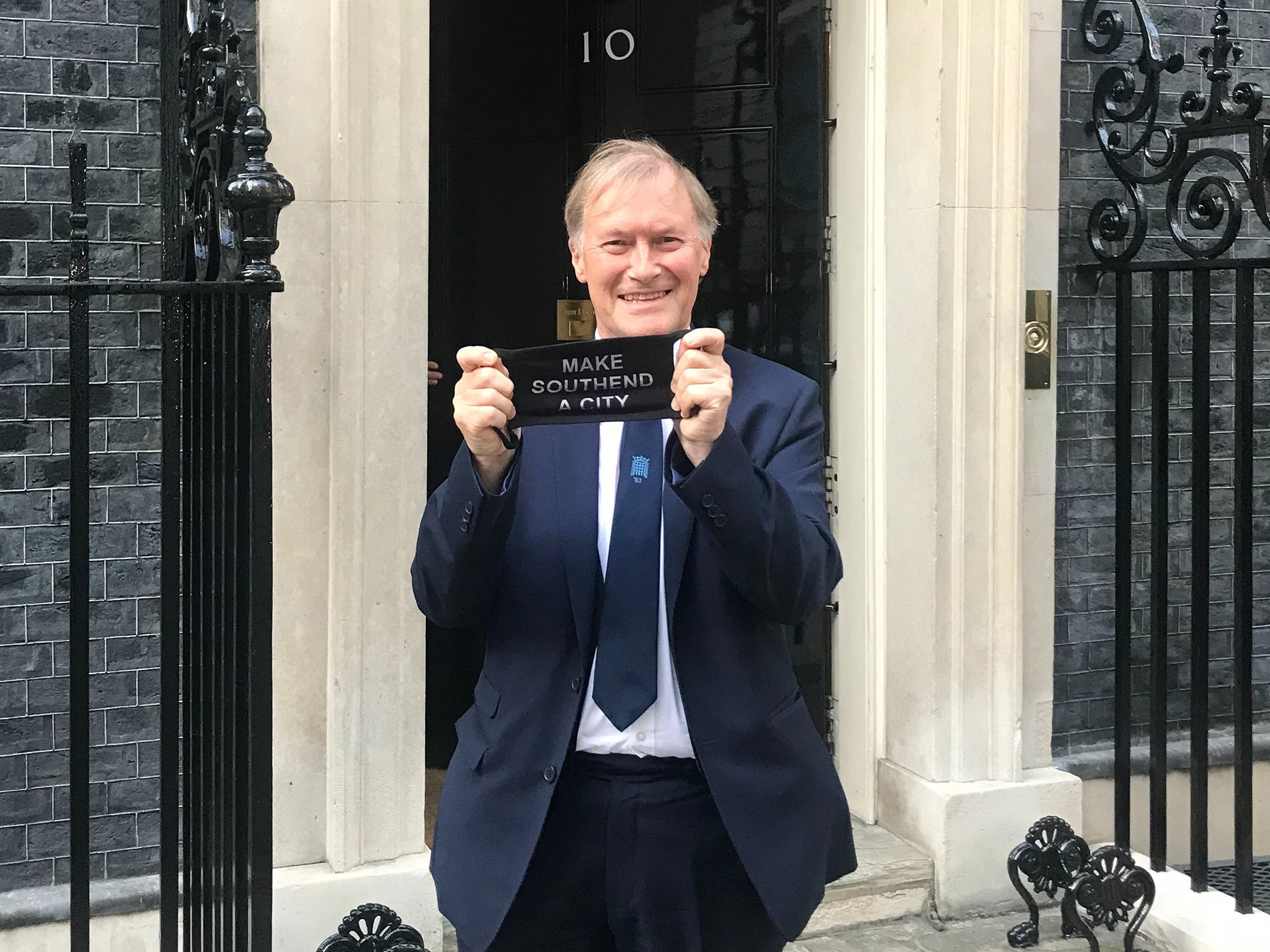It’s a fitting tribute to David Amess for Southend-on-Sea to become a city
The town’s local MP, who was fatally stabbed on Friday, championed its case for city designation for years. Sean O’Grady explains why it’s right that his wishes have been honoured

Among other memorials to Sir David Amess’ life and work, it seems entirely appropriate that Southend-on-Sea will be granted city status, something he had campaigned long for. It is in special recognition of the fact that he died because of his work and at his duties as a public servant, and because of his special affinity to the constituency of Southend West. It also seems inevitable, because it is granted by the Queen on the advice of the lord chancellor. In 2000, 2002 and 2011 there were some unseemly “competitions” for the prize, from which Brighton, Lisburn, Inverness and Chelmsford got promoted, but it doesn’t have to be won in that manner. The prime minister announced on Monday that the Queen had agreed Southend “will be accorded the city status it so clearly deserves’’.
Besides all of that, Southend has a case for city status in any case. Historically, though even then not invariably or automatically, a place calling itself “city” was linked to it being a Roman fort or having its very own cathedral, or the local authority being “incorporated”, a successor to the ancient appointment of mayor, sheriffs, burgesses and bailiffs, or being of a certain size, and industrial power, as well as being relatively “big” by contemporary standards. In Scotland, rules for burghs also historically differed. Nowadays it’s not exactly random, but it is discretionary. After all what is the difference between a large town and a small city? None, for the inhabitants, apart from that slight hint of prestige and impatience. There are 69 formal cities in the UK, and many more would love to be.
Subscribe to Independent Premium to bookmark this article
Want to bookmark your favourite articles and stories to read or reference later? Start your Independent Premium subscription today.
Join our commenting forum
Join thought-provoking conversations, follow other Independent readers and see their replies